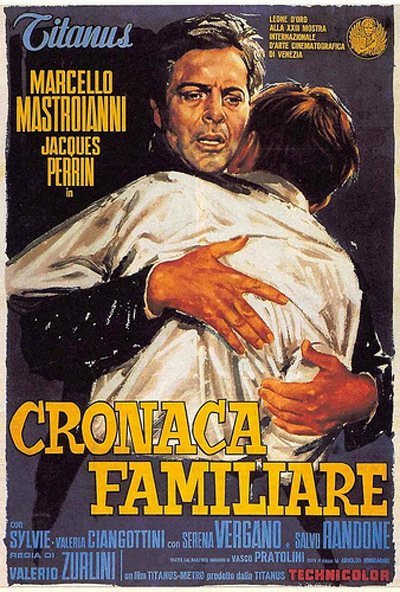One of Valerio Zurlini’s masterpieces, a profound and unique look into the solitude of contemporary man
Marcello Mastroianni, at the height of his acting prowess, reveals his most intimate side
Zurlini, taking inspiration from an autobiographical novel by Vasco Pratolini, manages to construct a landscape around the memories of two individuals of incredible psychological depth, placing them in a historical context that never takes away from the urgency of their personal story. It is a wonderfully dark portrait of a family trying hard to piece itself back together, having been divided by time and distance. It is also an honest look at the solitude of contemporary society, and at the wonder created when a bit of humanity cuts through the pain. Giuseppe Rotunno’s cinematography is strongly influenced by the art of Giorgio Morandi. The casting is superb, with Tullio Kezich writing about Marcello Mastroianni, that “It is in this film that he shows his most hidden face and his ability to get to the heart of his character through his acting.”
Enrico receives a telephone call informing him of the death of his younger brother Lorenzo. He looks back over their troubled relationship, starting from earliest childhood when they were separated. Enrico is brought up in poverty by their grandmother, while Lorenzo is raised in an upper-class setting. However, in the 1930s, it is Enrico who financially supports Lorenzo by working as a journalist, and a love/hate relationship develops between them. Then the younger brother starts to suffer from an illness.
One of Valerio Zurlini’s masterpieces, a profound and unique look into the solitude of contemporary man
Marcello Mastroianni, at the height of his acting prowess, reveals his most intimate side
Zurlini, taking inspiration from an autobiographical novel by Vasco Pratolini, manages to construct a landscape around the memories of two individuals of incredible psychological depth, placing them in a historical context that never takes away from the urgency of their personal story. It is a wonderfully dark portrait of a family trying hard to piece itself back together, having been divided by time and distance. It is also an honest look at the solitude of contemporary society, and at the wonder created when a bit of humanity cuts through the pain. Giuseppe Rotunno’s cinematography is strongly influenced by the art of Giorgio Morandi. The casting is superb, with Tullio Kezich writing about Marcello Mastroianni, that “It is in this film that he shows his most hidden face and his ability to get to the heart of his character through his acting.”
Enrico receives a telephone call informing him of the death of his younger brother Lorenzo. He looks back over their troubled relationship, starting from earliest childhood when they were separated. Enrico is brought up in poverty by their grandmother, while Lorenzo is raised in an upper-class setting. However, in the 1930s, it is Enrico who financially supports Lorenzo by working as a journalist, and a love/hate relationship develops between them. Then the younger brother starts to suffer from an illness.
